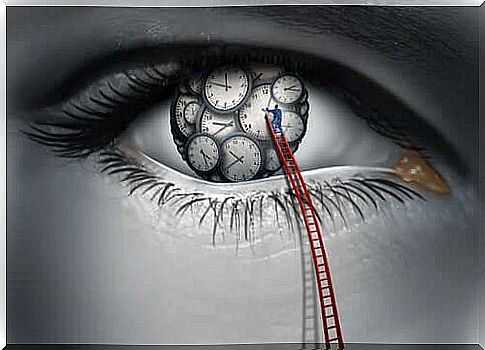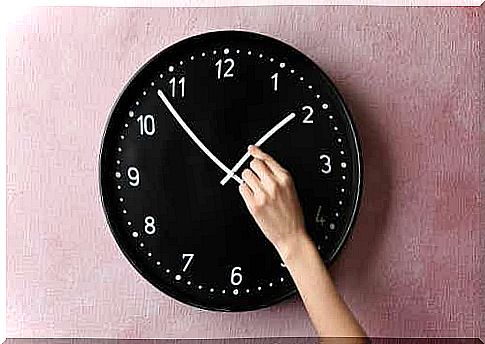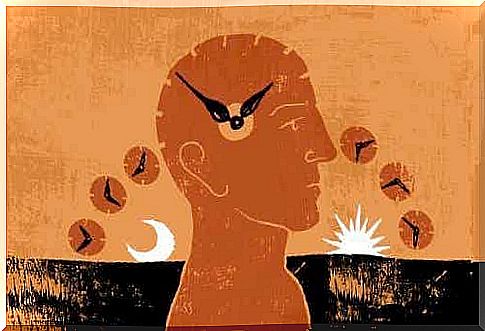How Exactly Does The Biological Clock Work?

We all intuitively know our biological clock and know its presence. This is because it is a kind of internal chronometer that tells us that it is time to sleep or wake up. Furthermore, it determines the various physiological changes we experience throughout the day.
The concept of a biological clock as such is familiar to many, although the discovery of how it works is relatively new. It was researchers Jeffrey C. Hall, Michael Rosbash and Michael W. Young, winners of the Nobel Prize in Physiology or Medicine 2017, who revealed this mystery.
Not only do we currently know how the biological clock works, but we established that its changes are a risk factor for the development of many diseases. We also know that life on earth moves to the rhythm of these natural cycles.
What is the biological clock?

In general, the biological clock is an internal mechanism for living beings that allows us to place ourselves temporarily. What it basically does is give instructions to the various organic activities – such as sleeping, eating, etc. when we need to.
In the same way, like a regular clock, it works biologically in cycles. This means that it develops continuous sequences that fulfill the cycles and then restarts. This is why we feel hungry or tired again from time to time, for example.
This watch regulates functions such as sleep, hormone release, eating behavior, and even blood pressure and body temperature. Scientists say that it is a kind of molecular writing that all living organisms have.
Some background
All life on earth works in coordination with the planet’s rotation. Thus, day and night are the basic parameters that living things move around. As early as the 18th century, astronomer Jean Jacques d’Ortous de Mairan noticed that some functions of plants took place during the day and others at night – regardless of whether they were exposed to light.
In the 1960s, biologist Franz Halberg first talked about circadian rhythms to refer to the biological processes that take place during the 24-hour period every day. These initially slept at night and were awake during the day. However, they still did not know what caused these cycles.
Geneticist Seymour Benzer and his colleague Ronald Konopka studied the possibility that genes activated the biological clock mechanism. However, it was not until 1984 that researchers Jeffrey Hall, Michael Rosbash and Michael Young succeeded in identifying the genes. That was when they discovered how the whole mechanism worked.
How does the biological clock work?

The biological clock is a mixture of genes in which two of them, to put it simply, dominate during the day, while two others prevail at night. At least ten other genes complement the effect and regulate the daily and nocturnal processes of a given organism.
The mechanism of action is as follows:
- The clock and cycle genes begin to activate and the proteins they produce are sampled throughout the day at the beginning of the day
- Other genes called period and time are activated when there is a large accumulation of such proteins, towards the beginning of the night
- The proteins produced by period and the time genes are collected through the night, which inhibits both the production of the clock and the cycle genes
A decrease in the proteins in the clock and cycle genes deactivates the period and time genes. This is because these need a protein collection to be activated.
Things to keep in mind
A body functions better and remains more stable if it follows the exact rhythm of the biological clock. This essentially means sleeping the right number of hours at night and being active during the day, as well as eating at the best times.
The internal timer works in every cell as well as in every organ of living beings. The way this watch works in each individual person determines a certain tendency to be more productive at certain hours.
Similarly, the organism’s response to changes in external stimuli depends on time. Thanks to the field of chrono-pharmacology, we know that the body reacts differently to a substance if you take it, for example, during the day, in the afternoon or at night.









